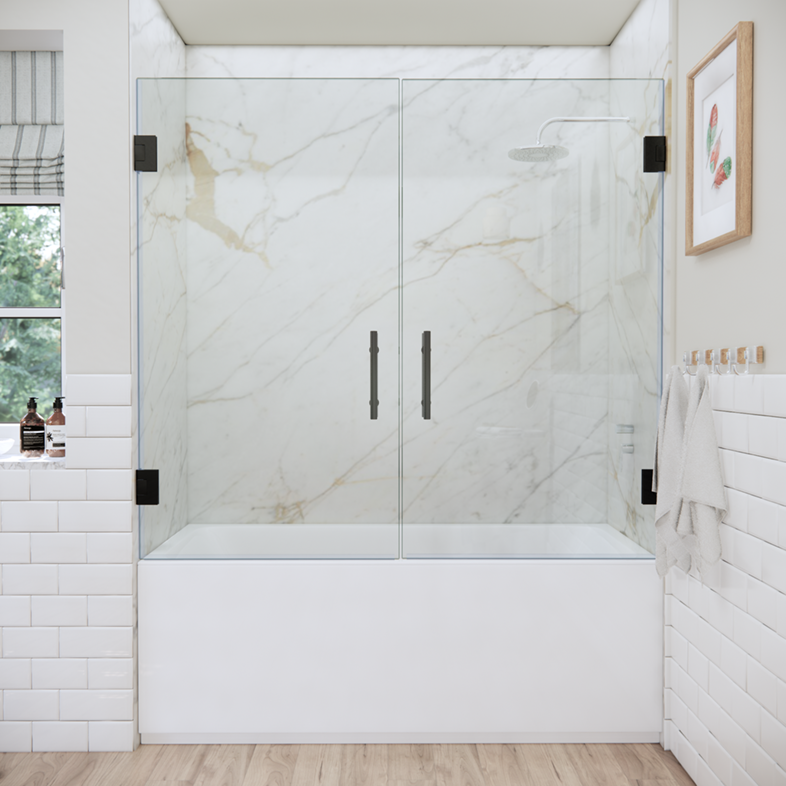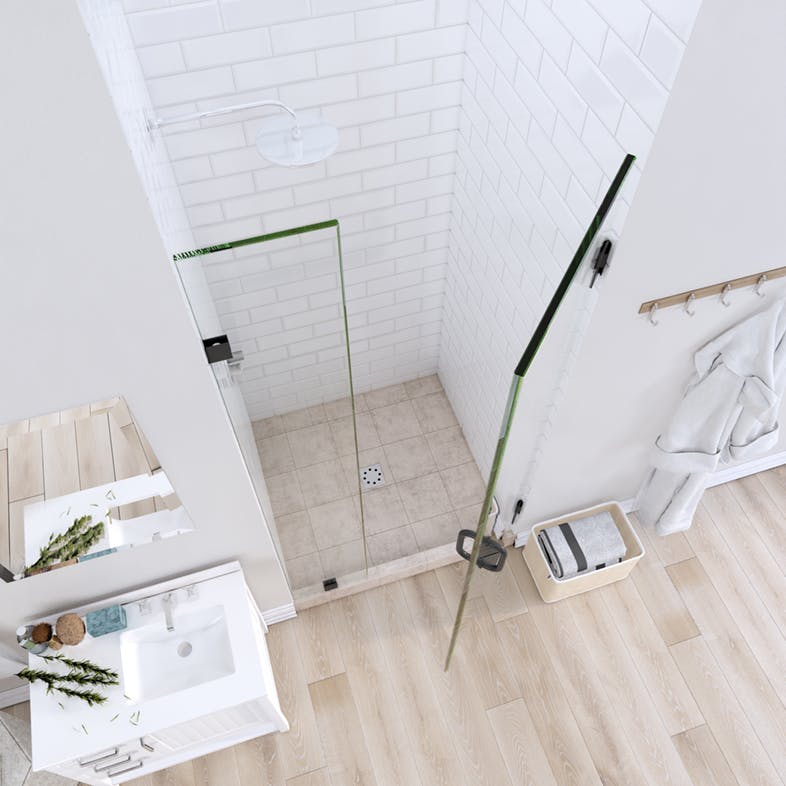When upgrading your bathroom, choosing the right shower door can make a significant difference in aesthetics and functionality. Two of the most popular choices are sliding shower doors and hinged shower doors. Each style has its unique advantages, and the best choice often depends on your bathroom layout, personal preference, and practical needs. This guide will walk you through the key differences between sliding and hinged shower doors, helping you make an informed decision for your space.
|
|
Sliding Glass Shower Doors vs. Hinged Doors: Which is Best for Your Bathroom?
Dulles Glass
|
Sun Nov 24 2024

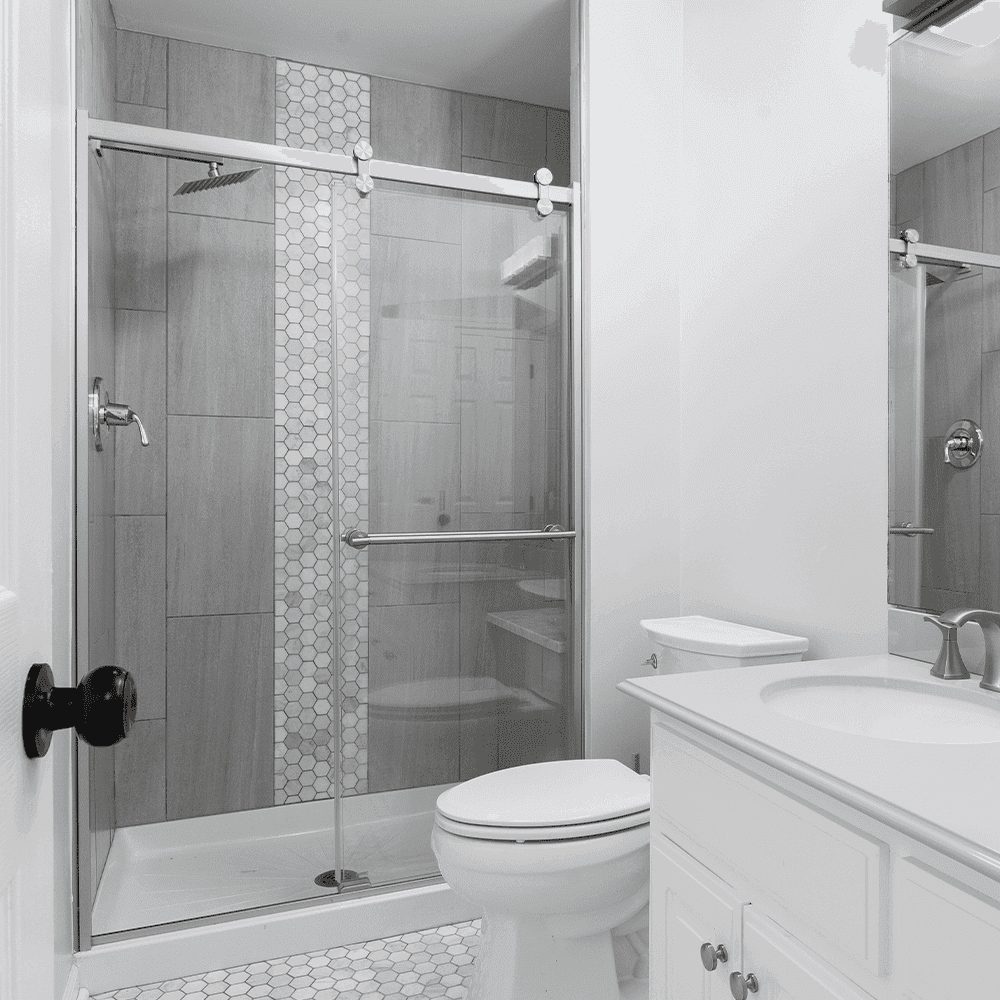
Understanding the Basics: Sliding vs. Hinged Shower Doors
Sliding Doors:
Sliding doors, also known as bypass doors, consist of two or more glass panels that slide along a track, making them a great option for space-saving designs.
Hinged Shower Door:
In contrast, hinged doors open outward or inward on hinges, swinging open to provide full access to the shower entrance. Both styles can be frameless, semi-frameless, or framed, with options in clear glass or frosted glass for privacy.
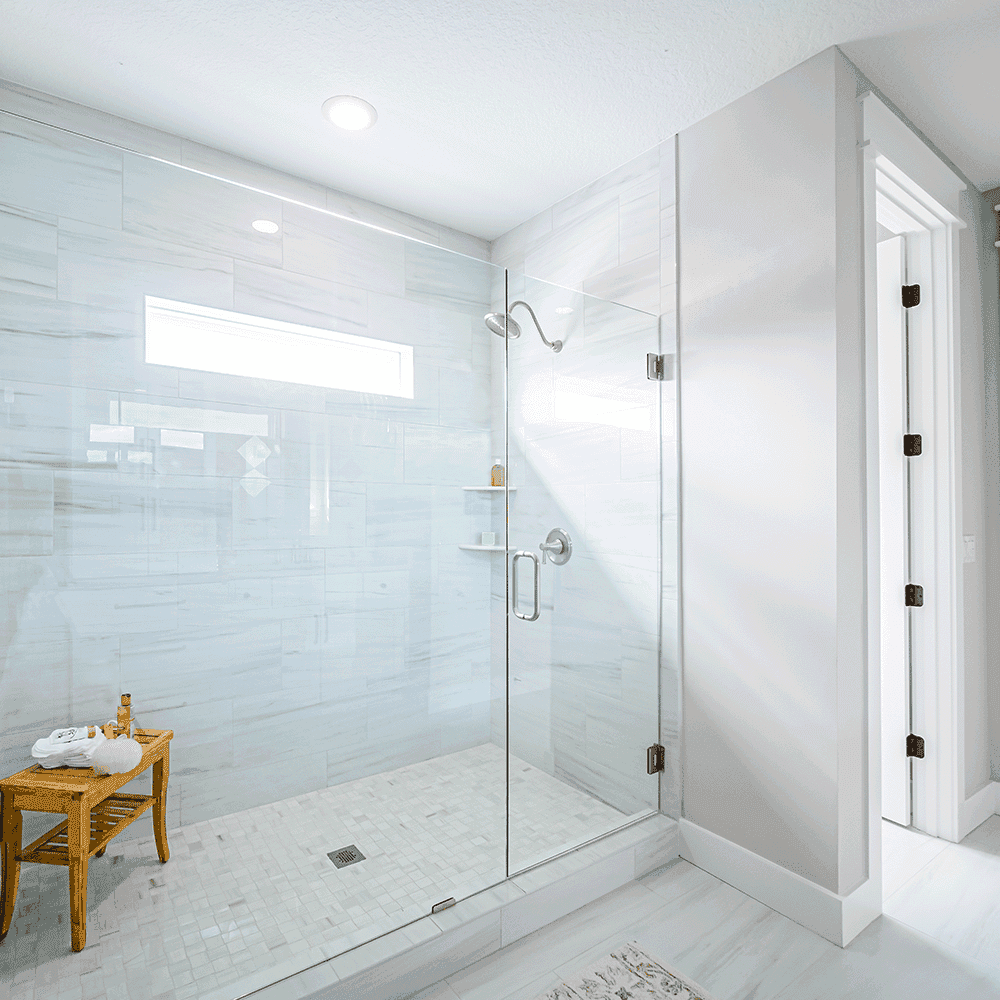
Comparing Styles of Sliding and Hinged Doors
Both sliding and hinged doors come in a range of styles that can elevate your bathroom design. Sliding doors typically feature sleek, modern lines and minimal hardware, contributing to a frameless shower door aesthetic. Meanwhile, hinged doors can offer a classic or contemporary look, with various handle styles and hardware finishes to match your bathroom decor. Hinged shower doors might be the better fit if you prefer a more traditional style.
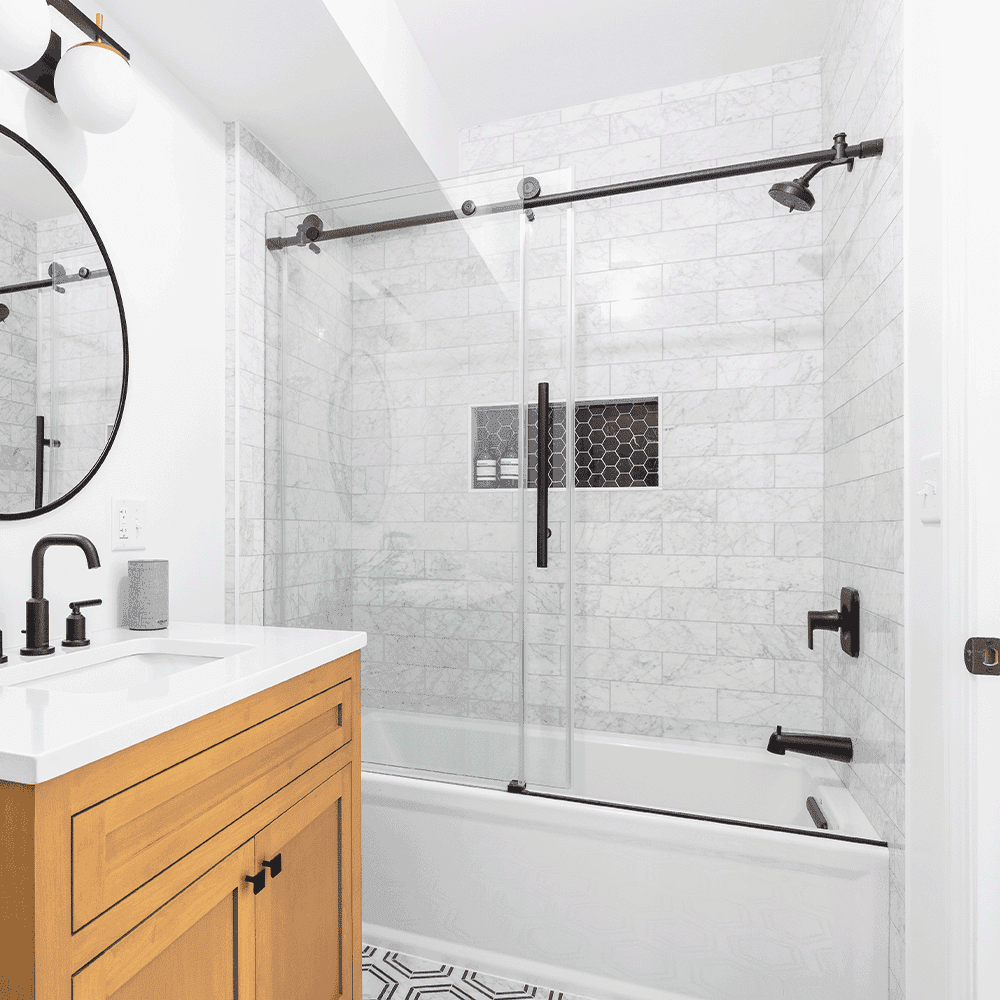
Space Considerations: Which Door Type Fits Your Bathroom?
One of the most important factors to consider is the available space in your bathroom. A sliding shower door is a great option if you have a small or narrow shower area. Since sliding doors don’t require any additional space for swinging open, they’re ideal for compact bathrooms. Hinged shower doors, on the other hand, need more space to open fully, so they’re better suited for larger bathrooms where the door can swing freely without hitting other fixtures.
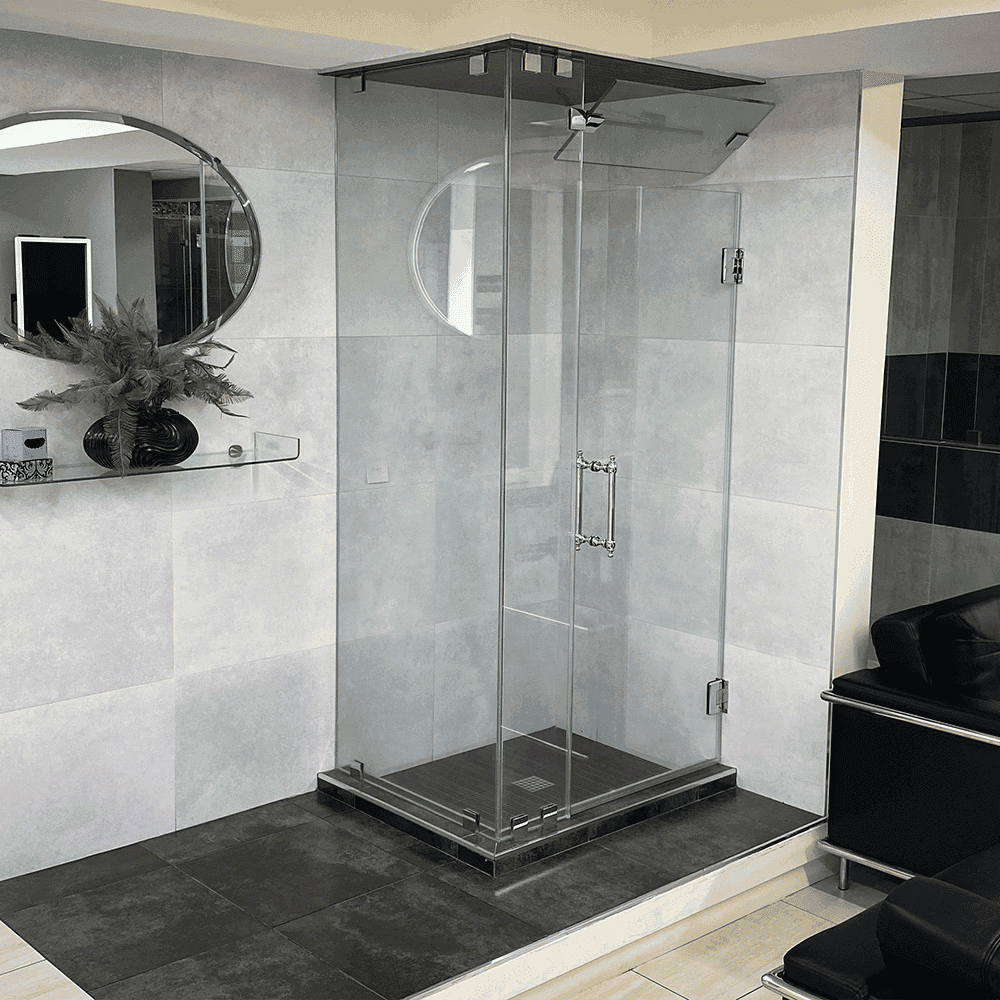
Functionality and Ease of Use: A Head-to-Head Comparison
When it comes to ease of use, sliding shower doors are practical and effortless. Since they move along tracks, you don’t have to worry about the door swinging open and potentially obstructing other areas of the bathroom. Hinged doors, while elegant, may require more space for the swing radius and may not be as easy to maneuver in tight bathrooms. However, hinged doors provide a wider opening, which can be beneficial for people with mobility concerns.
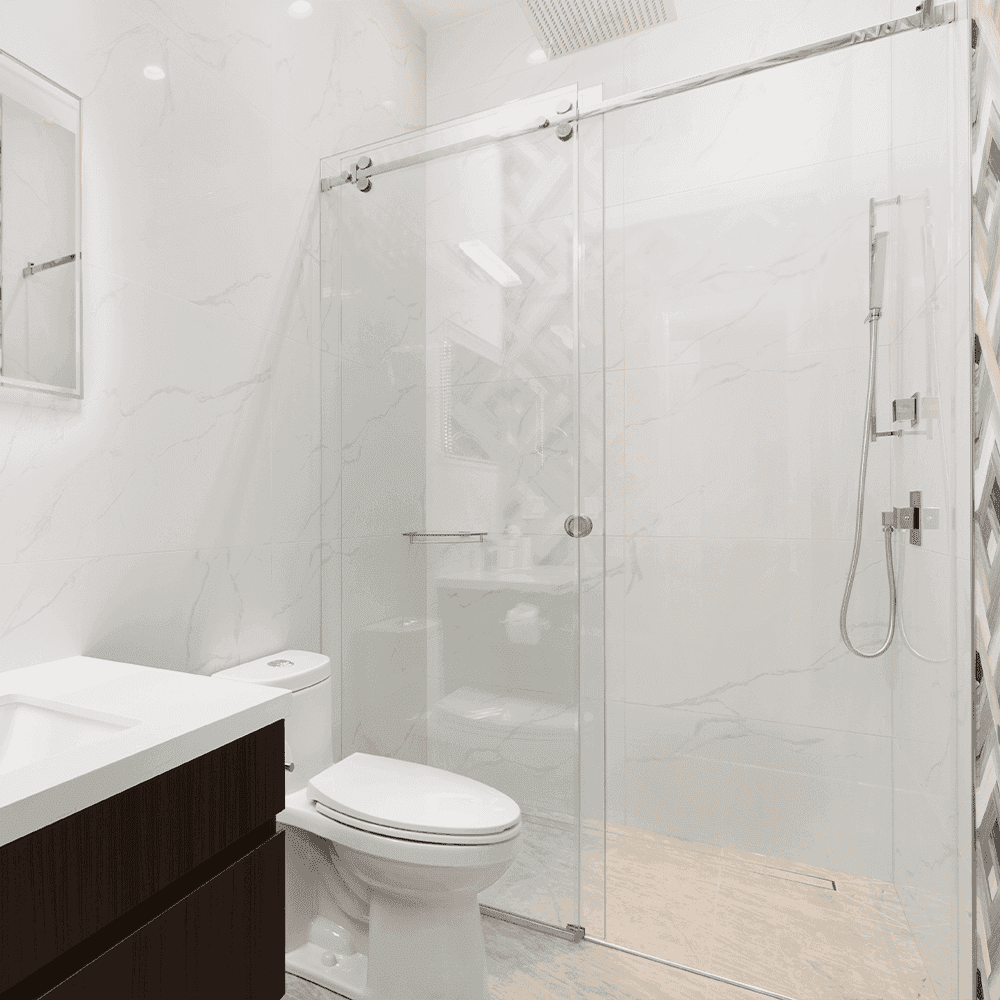
Budget Implications of Sliding vs. Hinged Doors
Budget is a key consideration when choosing between a sliding shower door and a hinged shower door. Typically, sliding doors are more affordable due to their simple track system. However, hinged doors, particularly frameless shower doors, can be more expensive because they require more precision during installation and often use tempered or laminated glass for added safety and durability. It’s important to factor in both the cost of the door and the installation process when making your decision.
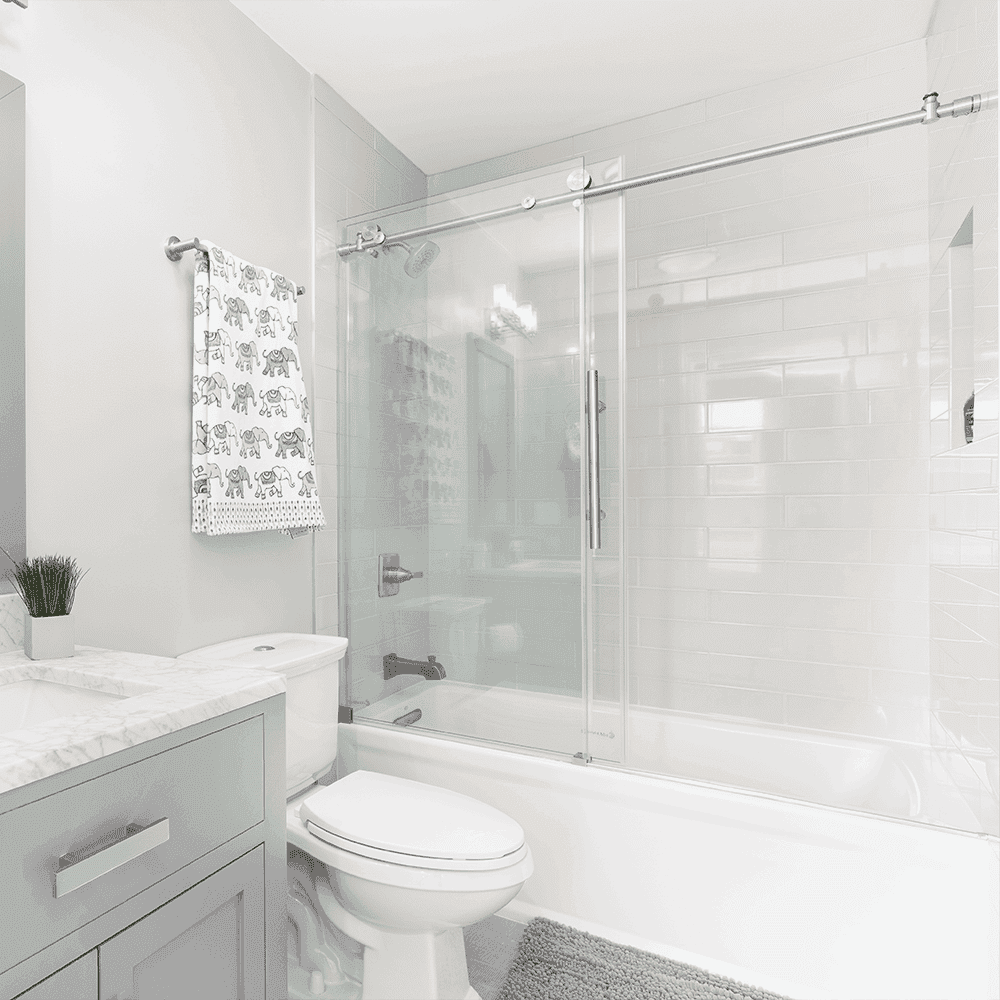
Installation Process: What to Know Before You Choose
Installation complexity varies between sliding and hinged shower doors. Sliding doors are typically easier and faster to install, as they rely on a simple track system. Hinged doors, especially frameless models, require more precision during installation to ensure proper alignment and secure mounting. The framing thickness and the type of glass—whether
tempered or laminated glass—can also affect the complexity of the installation process.
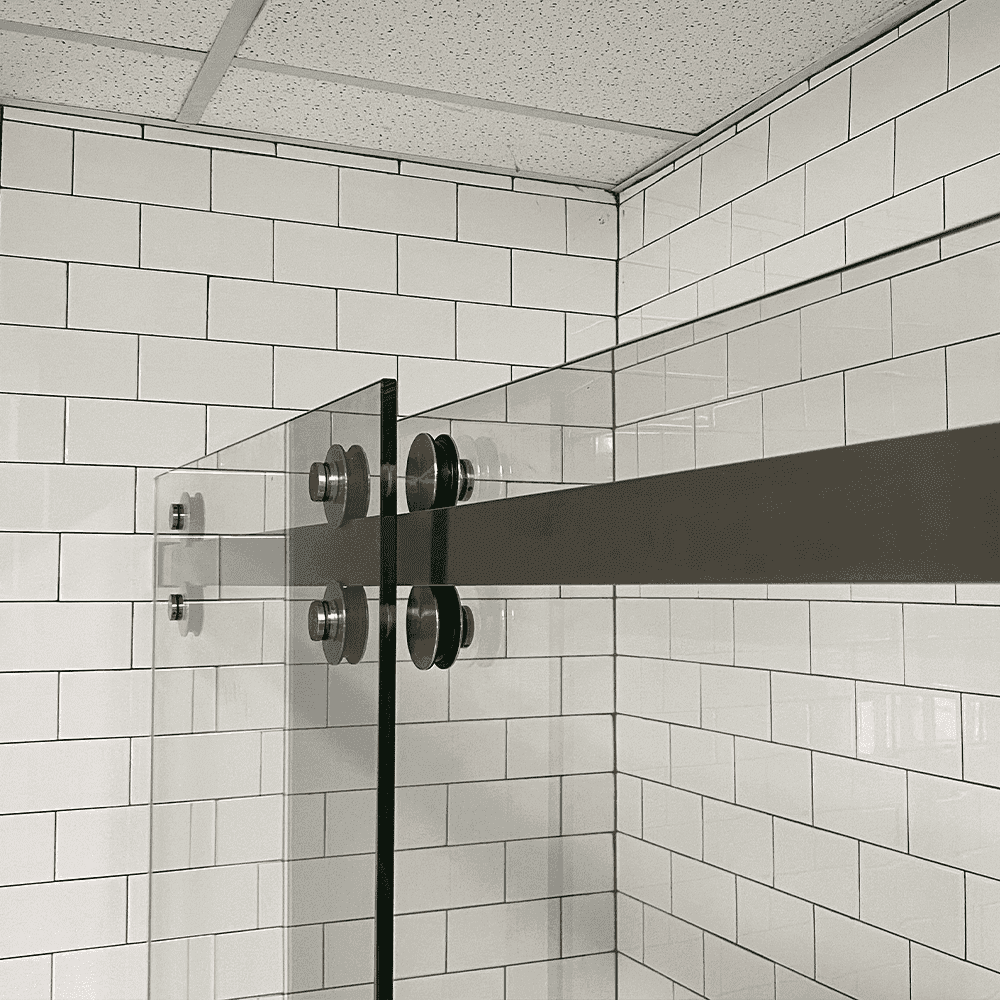
Maintenance and Cleaning: What to Expect from Each Door Type
Maintaining your shower doors is important for ensuring they stay functional and beautiful for years to come. Sliding doors have tracks that can accumulate dirt and require regular cleaning to ensure smooth operation. Hinged shower doors, particularly frameless designs, are generally easier to clean because they don’t have tracks, but the hinges may require occasional maintenance to prevent squeaking or corrosion. Both clear glass and frosted options require similar care, with the occasional use of glass cleaner to maintain a streak-free shine.
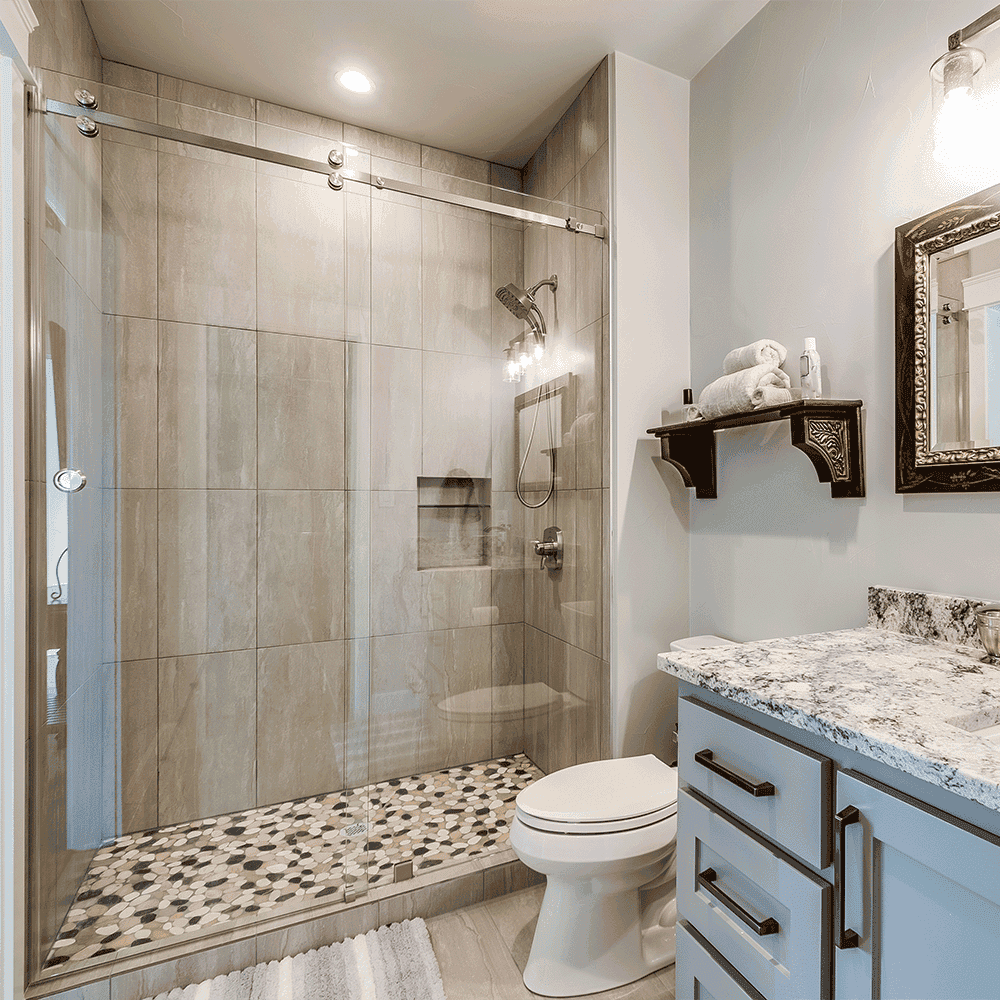
Accessibility Concerns: Which Door is More User-Friendly?
For those with mobility issues, the ease of access to the shower entrance is critical. Hinged doors provide a wider opening, which makes entering and exiting the shower easier. Sliding doors may be slightly more challenging for individuals with limited mobility, as they require the user to slide the door aside, which can be difficult for some. If accessibility is a priority, a hinged shower door with a wide opening might be better.
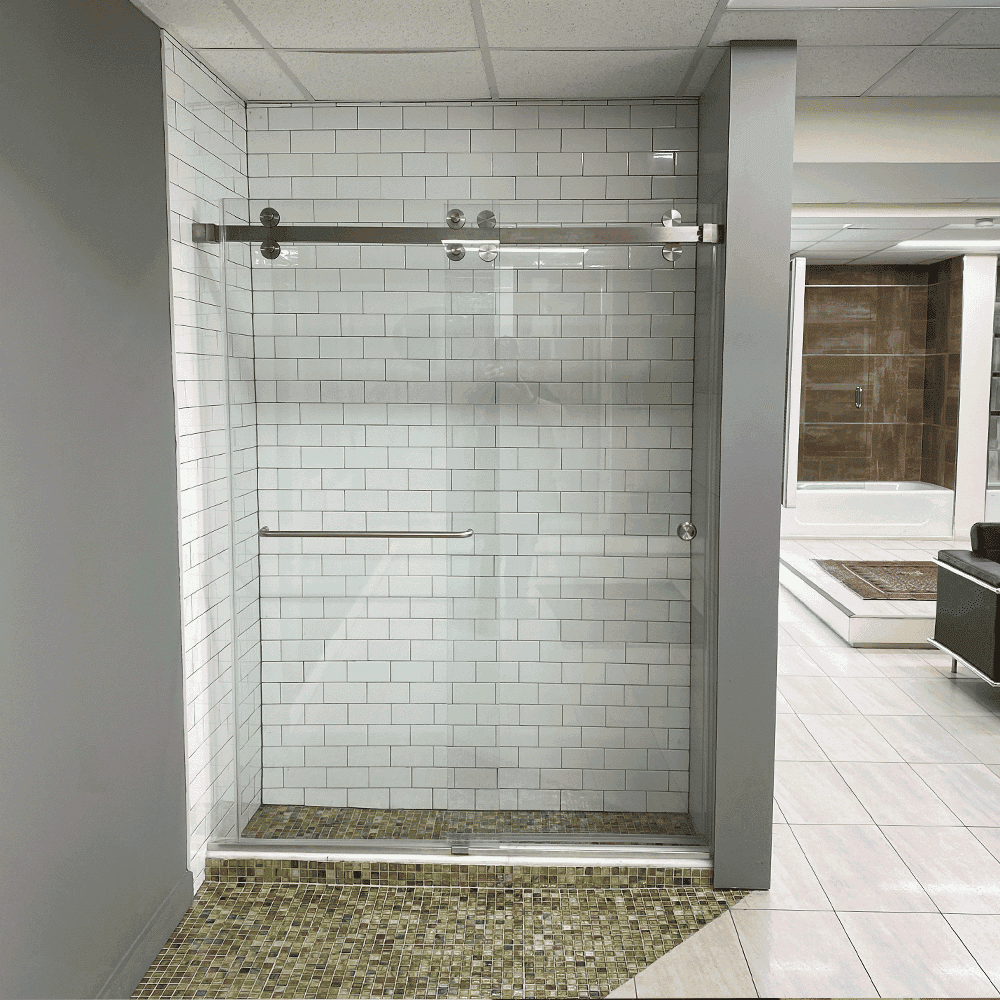
Durability and Longevity: How the Two-Door Types Stack Up
Both sliding and hinged shower doors are durable options, but their longevity can depend on the quality of materials used and the environment of your bathroom. Sliding doors may experience wear on the tracks over time, requiring occasional maintenance. Hinged doors, especially frameless models, often use highly durable tempered glass, but the hinges may need periodic tightening. Both styles, when properly installed and maintained, should last for many years.
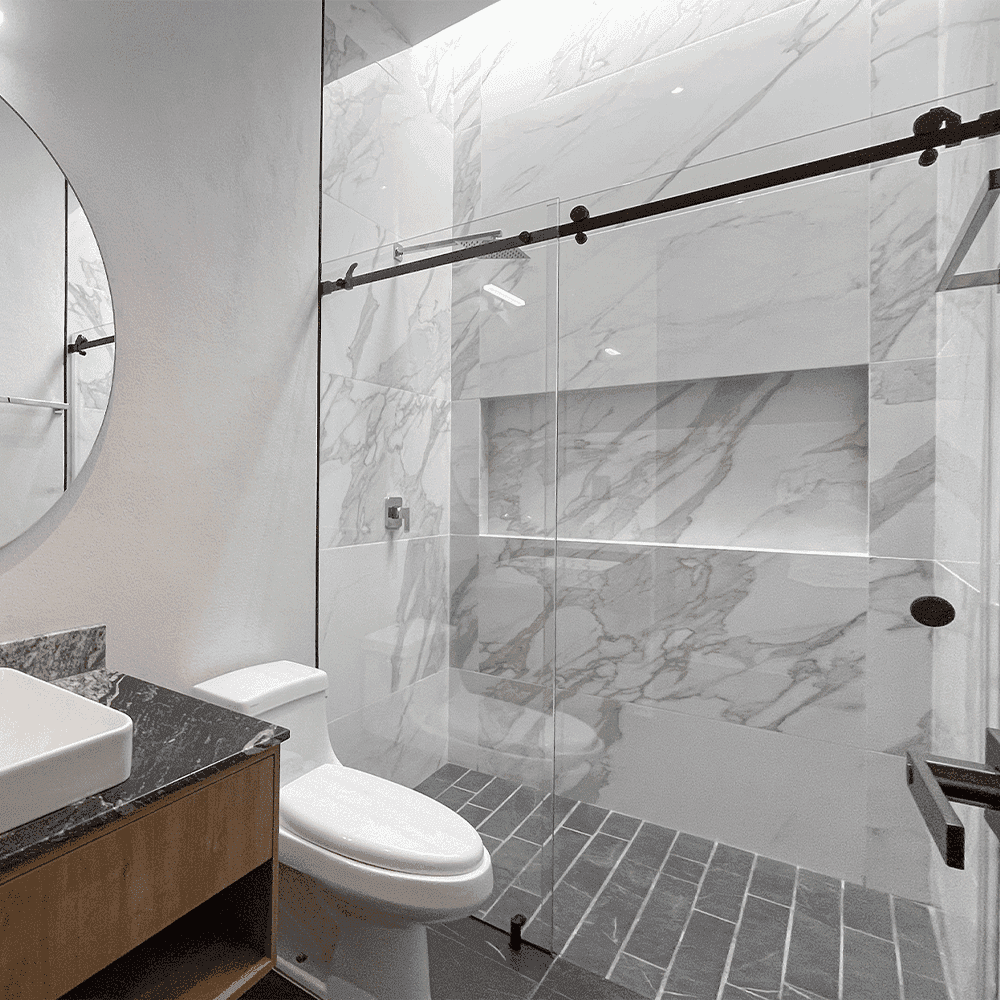
Conclusion: Which Shower Door is Right for You?
Choosing between sliding and hinged shower doors ultimately depends on your bathroom’s size, style preferences, and functional needs. Sliding shower doors are ideal for those with smaller bathrooms or who prefer a modern, space-saving solution. Their sleek design allows for a more open and airy feel, perfect for tight spaces. Hinged doors, on the other hand, are better suited for larger bathrooms where you can take full advantage of their wide-opening functionality. They also offer a more traditional or elegant aesthetic, with various customization options. Consider factors such as maintenance, accessibility, and budget when making your decision, and remember that both door types can bring style and practicality to your bathroom when chosen thoughtfully.
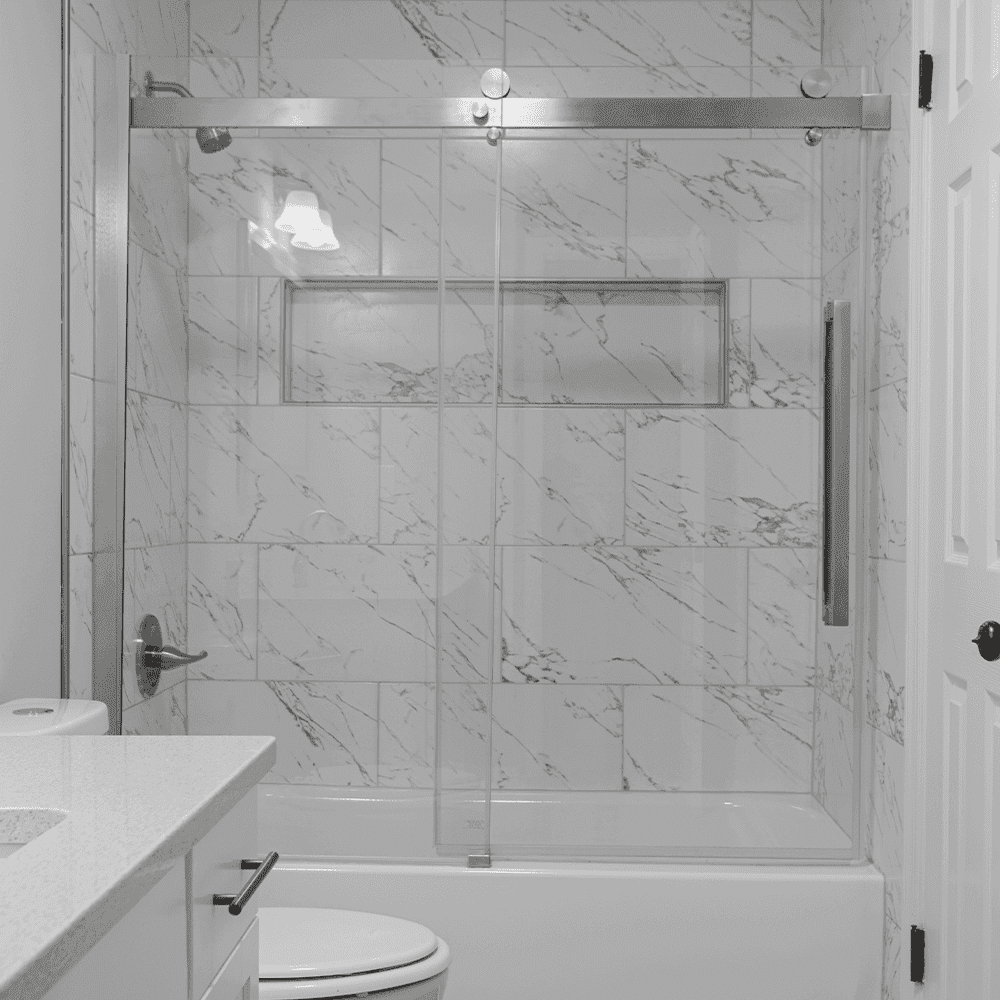
FAQs
What are the disadvantages of sliding shower doors?
While sliding shower doors are space-saving and practical, they do come with some drawbacks. The tracks can accumulate dirt and mildew, requiring regular cleaning to ensure smooth operation. Additionally, the bulkier frames of semi-frameless or framed sliding doors may trap moisture, leading to potential mildew buildup and more frequent maintenance.
Which is better, a hinge or pivot shower door?
A pivot shower door is easier to clean and maintain compared to a traditional hinged door since it doesn't have hinges that collect dirt and grime. It also offers a sleek, seamless look and is less likely to leak. Plus, the door rotates on a pivot point, giving it a smoother, more space-saving function.
What are the benefits of a sliding shower door?
A sliding shower door offers several benefits, including a sleek, modern design that complements various bathroom styles. Its space-saving functionality is ideal for smaller bathrooms, as it doesn’t require clearance for opening and closing. Additionally, sliding doors allow for customization in glass style, hardware, and framing, while their expansive glass panels maximize natural light, creating an open and bright atmosphere in your shower area.
Is a sliding shower door more expensive?
A frameless sliding shower door is generally more expensive than traditional options due to the complexity of installation and the use of thicker, premium tempered glass. The precise fitting of the track system adds to labor costs, but the sleek, modern design and open feel often make it worth the investment for those seeking a high-end look.
How much space do I need for hinged shower doors to open?
Hinged shower doors require ample space to swing open fully, typically needing a minimum of 30 inches of clearance in front of the door. In smaller bathrooms, this may limit your layout options, as the door must be able to open without obstructing other fixtures like the toilet or sink.
Are sliding shower doors suitable for larger showers?
Yes, sliding shower doors can work in larger shower spaces, though they are particularly beneficial in smaller bathrooms due to their space-saving design. For larger showers, sliding doors can still provide a sleek, modern look and might be preferred if you want to maintain an open, minimal aesthetic without taking up additional floor space.
Can you customize the glass on sliding or hinged shower doors?
Both sliding and hinged shower doors offer options for customization. You can choose between clear, frosted, or tinted glass, and you can also select different hardware finishes such as chrome, brushed nickel, or matte black. Additionally, some manufacturers offer customizable glass designs, like etched patterns or decorative films for added privacy or style.
Do hinged doors require a threshold?
Yes, hinged shower doors typically require a threshold at the bottom to prevent water from leaking out when the door is closed. This threshold helps to keep water contained within the shower area. Sliding doors, on the other hand, often have a bottom track that serves a similar function but in a different design.
What maintenance is required for sliding shower doors?
Sliding shower doors, especially those with tracks, require regular cleaning to prevent dirt, soap scum, and mildew buildup in the tracks. The tracks should be wiped down periodically, and the rollers may need lubrication to ensure smooth operation. The glass should be cleaned with a glass cleaner to maintain its clarity and prevent water spots.
Are hinged shower doors better for walk-in showers?
Hinged shower doors can be an excellent choice for walk-in showers, as they provide a wide opening for easy entry and exit. They are ideal for larger shower spaces where you want an open, spacious feel. Sliding doors might not work as well in walk-in showers, as they require track systems that can interrupt the flow of the design.
Related Articles
Keep in touch with the latest glass, mirror and shower door trends, tips and trends by reading our blog, Reflections!
Get exclusive offers and the latest news in your inbox!
We're committed to your privacy. Dulles Glass uses the information you provide to us to contact you about our relevant content, products, and services. You may unsubscribe from these communications at any time.
For more information, check out our Privacy Policy.
Dulles Glass
Company
Support
United States © 2025 Dulles Glass. All Rights Reserved.
United States © 2025 Dulles Glass. All Rights Reserved.

